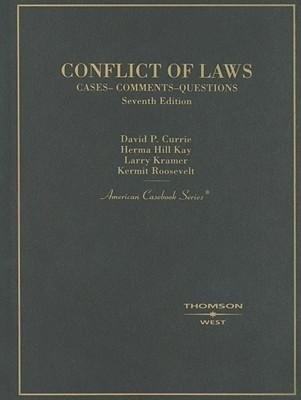Social Media Regulation
Overview
Well, something strange is coming out of the Davos summit - some tech heavies are calling for social media and tech industry regulations, a la the style that the cigarette industry had clamped down on them over things like Joe the Camel.
As a refresher, Camel used to promote its products using a cartoon camel named Joe who was super stylish, and somewhat reminiscent of the Dos Equus "Most Interesting Man in the World" character. Most of the official Joe the Camel images depict the character in some sort of high class setting, in suave or sexy clothes, looking cool or doing cool things. Many conservatives and moderate went on a crusade about how Camel was using cartoons to target a younger audience, to hook people on cigarettes at a younger age, and thus make more money.

Source: Stanford University
Joe wasn't the only target in this regulatory crusade. Even the Marlboro Man was targeted, cited as being a marketing technique aimed at teenagers, particularly rural and outsider teenagers. Although he's still occasionally used, his appearances in marketing media are much, much rarer.
This crusade eventually lead to flavoured cigarettes, including the imported cloves like Djarum, being banned as well; many got around this by repackaging themselves as cigars and cigarellos, however. Largely, though, the cigarette industry has been quite regulated over the years due to its addictive nature.
Why Should Tech Be Regulated
Tech and Social Media Bosses don't use their own products, or at least they don't use them the way the vast majority of people do. They follow the mantra of drug suppliers - Don't Get High On Your Own Supply, which is exactly why the Guardian used that for their article title. The most successful drug dealers - illegal and legal - do not use their own drugs, or if they do, they use them incredibly sparingly, because they know how addictive they are, and how quickly they can destroy their lives and all they've worked for.
As mentioned in the linked article, many social media bosses have curated accounts, with a team that help them maintain the account; they might have some sort of personal postings that a select few can see, but many of them actually spend a mere fraction of the time the general populous spends on their product. The test case of Jack Dorsey is likely the majority rather than the minority for these tech bosses, as well as the revelations about Mark Zuckerburg; as pretty as Zuckerburg's Facebook page may be, it's run by a team, and all of his posts are managed, and he rarely posts candidly anymore.

Source: Business Insider
This post is rather immaculate. It seems so fun, like a genuine post made about a New Year's resolution, however it's merely highly choreographed and made to look like your average guy looking towards the next year. The formatting seems to be loose and casual, but it's not - it's all a trick.
Tech is Built to be Addictive
A handful of degrees started the tech industries - programming/IT (obviously), business, and psychology. More have joined since then, but these really kickstarted the place.
I worked at two different gaming studios - Sony Online Entertainment and SEGA of America. Of course, there was a business side to both companies where the various business related degrees sat, but within the rest of the companies, I found that there were a rather ridiculous number of people had some form of psychology related degrees, or at the very least minored in some form of psychology or philosophy. While at the time it was far less insidious as it is now, it was very interesting to see how development teams would apply their knowledge of psychology to make their games more immersive and enjoyable.
Quite a number of years have passed since then. I left SOE in the Spring of 2003. I only worked for SEGA over six months that spanned the end of 2005 into 2006. We're about 12 on from when I was working in the gaming industry. Since then, many great companies have devolved into practices that use psychology in a predatory way, and it shames the hell out of me. Some still use psychology in a less invasive way, but too great a number have moved on to using psychology to create hooks that addict people to their games.
And the gaming industry is not the only facet of the tech industry to do it. Everyone is doing it. Psychology is an integral part of the tech industry, to a frightening degree, and anyone who cannot accept that when the evidence is presented needs to wake up.
Live in the Moment
Find out how addicted you are to your tech. There's an application called Moment that's currently available for iOS - an Android version is in development and you can sign up to be notified when it's ready.
Moment is an iOS app that automatically tracks how much you use your iPhone and iPad each day. If you’re using your phone too much, you can set daily limits on yourself and be notified when you go over. You can even force yourself off your device when you’re over your limit.

Source: Moment Website
Moment also has settings to regulate usage by children. It's developed by one guy who just realised that he was using too much tech, and wanted to cut back, so he developed an app to track what he was doing...and was startled by what he found. Likely, anyone using the app is going to be startled by the results - a PC version of the app will likely yield startling results as well.
But Steemit is Social Media...
Yes, it is.
Steemit is a social media platform. It has its own validation system, though that validation system may turn people away rather quickly due the fact that not everyone will be a Cinderella Story while simultaneously addicting others due to the fact that they become the Cinderella Story. Essentially, those who don't instantly start making Steem off the platform could drop off quickly while those who have rapid success end up hooked on the platform and invest large amounts of time on it, potentially becoming addicted to the system and its payouts.
Does this mean that Steemit needs to put some sort of regulator system in that meters a person's time on the platform?
This is a rather tricky question, and this is also where the regulatory situation falls apart - it's quite possible for an individual to get around any site's regulatory measures by working on their post or what not off-site, then logging in long enough to post whatever it is they have before browsing a bit. This would cut down their time significantly because they're not sitting on a screen burning time during the creation of their post/product. Essentially, the regulations could only cut down on browsing time or what types of content could be posted, and that's it.
Should such a thing be done by Steemit or forced onto Steemit by government regulations, we'd likely see people working more on their creations with something like Markdown Pad so they could pre-write posts, logging in and copy pasta'ing posts, then browsing their feeds a bit - essentially until their time runs out or they get bored, etc.

Source: MarkdownPad Website
This may see a hit to revenues on Steemit, but there might not be all that much.
General Issues with Regulations
The major issue with attempting to regulate tech and social media is that we'll run into one that they're already running into - variations of regulations between governments. One country will have one set of regulations they want enforced, while another will have another set of regulations they want enforced, and those regulations will not line up, and might outright conflict with one another.

Source: Conflict of Laws by David P Currie at the Book Depository
Conflicting laws already cause something of a headache for the tech industry. Adding more regulations - especially those around social media - will make this even more difficult. Social media is already dealing with a rather difficult climate involving conflicting laws around the globe, so adding even more regulations may be a tipping point that causes many communities to go under, or cause those that don't to degrade in quality due to moderation issues - and there's already a struggle to moderate social media.
Given that many tech and social media platforms are global, we're almost getting to the point where the tech industry needs something like WHO to create sets of world wide guidelines that apply across the board; sets of guidelines for countries to look to and either some or all of the suggestions from, but not add anything to in order to keep a standardised code that makes it so that tech and social media can keep up with the regulations without losing their quality and serviceability. Of course, like WHO, it would need to be a neutral body...which would be difficult to create in the tech climate, but it would at least need to be attempted.
Conclusion
I don't believe tech and social media can be controlled the same way cigarettes ended up being controlled. It definitely cannot be heavily regulated without something like WHO being built for the tech industry - it may not be able to be regulated at all without a global entity like WHO creating standardised suggestions of regulation for countries to follow. I do think that people will find ways around any regulations that are created, much like people found ways around every prohibition that's been done thus far.
However, it never hurts to try to do something to counteract the harmful things that humans tend to inflict on one another. Largely, it will matter whether or not the attempt is actually helpful, or just another harmful act upon the masses.